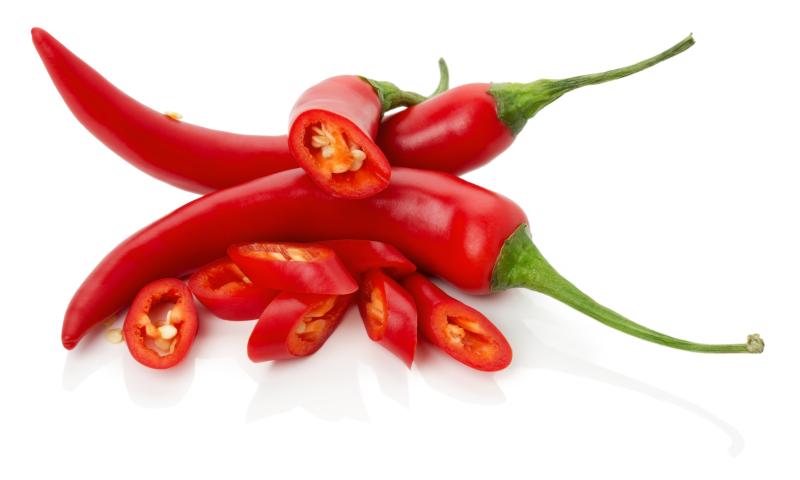
People who eat chili pepper regularly have a lower risk of total and cardiovascular disease (CVD) death independent of CVD risk factors or adherence to a Mediterranean diet, according to a study that involved a large Mediterranean population.
“Known biomarkers of CVD risk only marginally mediate the association of chili pepper intake with mortality,” the authors said.
The authors performed a longitudinal analysis on 22,811 men and women enrolled in the Moli-sani Study cohort (2005–2010). The European Prospective Investigation Into Cancer food frequency questionnaire was used to estimate chili pepper consumption, which was categorized as none/rare, up to 2 times/week, >2 to ≤4 times/week and >4 times/week.
Overall, 1,236 deaths were recorded over a median follow-up of 8.2 years. The risks of all-cause (hazard ratio [HR], 0.77, 95 percent confidence interval [CI], 0.66–0.90) and CVD mortality (HR, 0.39, 95 percent CI, 0.02–0.75) were reduced in participants in the regular (>4 times/week) intake group compared with those in the none/rare intake group.
Individuals who regularly consumed chili peppers also had lower risks of ischaemic heart disease (HR, 0.56, 95 percent CI, 0.35–0.87) and cerebrovascular (HR, 0.39, 95 percent CI, 0.20–0.75) deaths. A more robust association between chili pepper intake and total mortality was noted in those without hypertension (p-interaction=0.021).
Among known CVD biomarkers, only serum vitamin D marginally accounted for these associations.
“Chili pepper is a usual part of a traditional Mediterranean diet,” the authors noted.